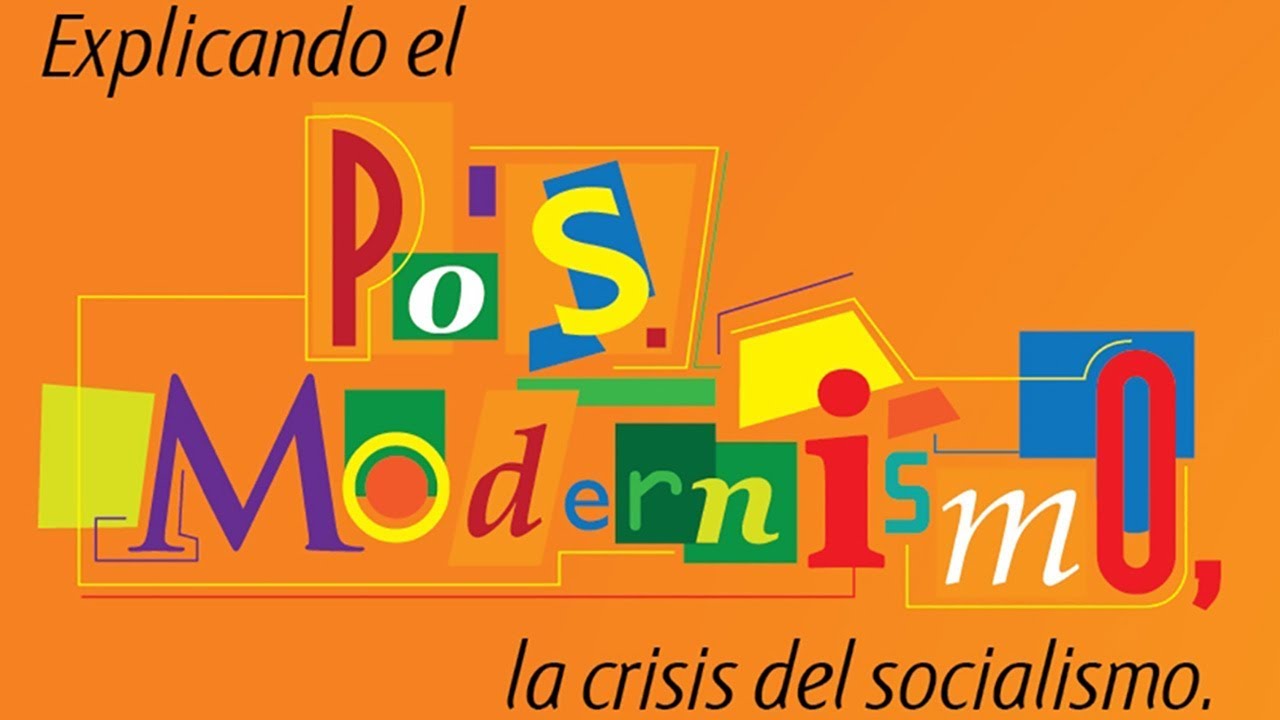Jordan B Peterson
On August 17, I spoke with Dr. Stephen Hicks (http://www.stephenhicks.org/), professor in the philosophy department at Rockford University. Dr. Hicks is the author of the influential and courageous 2004 book Explaining Postmodernism: Skepticism and Socialism from Rousseau to Foucault, which is perhaps even more relevant and important now than it was when it was published.
We spoke in depth about the history of philosophy as it has developed since medieval times, trying to understand and describe the processes that led to the rise of postmodern theory.
The book itself can be purchased here at Amazon: http://amzn.to/2icI7k1. Dr. Hicks has also made it available in pdf form here: http://www.stephenhicks.org/explaining-postmodernism/. A useful review/overview, written by Dr. Steven Sanders, can be found here: http://bit.ly/2icHret. An audiobook also exists, and can be found here: https://www.youtube.com/watch?v=qQcNjHNXnEE
Why is this all relevant? Because our culture finds itself currently embroiled in a war of ideas, and those ideas must be understood.
— SUPPORT THIS CHANNEL —
Direct Support: https://www.jordanbpeterson.com/donate
Merchandise: https://teespring.com/stores/jordanbpeterson
— BOOKS —
12 Rules for Life: An Antidote to Chaos: https://jordanbpeterson.com/12-rules-for-life/
Maps of Meaning: The Architecture of Belief: https://jordanbpeterson.com/maps-of-meaning/
— LINKS —
Website: https://jordanbpeterson.com/
12 Rules for Life Tour: https://jordanbpeterson.com/events/
Blog: https://jordanbpeterson.com/blog/
Podcast: https://jordanbpeterson.com/podcast/
Reading List: https://jordanbpeterson.com/great-books/
Twitter: https://twitter.com/jordanbpeterson
Instagram: https://www.instagram.com/jordan.b.peterson/
Facebook: https://www.facebook.com/drjordanpeterson
— PRODUCTS —
Self Authoring Suite: https://selfauthoring.com/
Understand Myself personality test: https://understandmyself.com/
Merchandise: https://teespring.com/stores/jordanbpeterson
Source




I admire Jordan Peterson but he is really making a mistake hitching his horse to the Hicks wagon. Hick's book on post modernism is beyond bad and should not be read by anyone looking for even basic academic standards.
Does Jordan Peterson not understand that his archetypes and pragmatic theory of truth are literally Post Modern?
He just needs to stop misrepresenting authors now and inventing quotes, get that shitty book peer reviewed and then he'll be almost there!
It's somewhat ironic that Hicks gives a classic post-modernist interpretation of Kant. For Hicks, Kant wasn't using reason to follow the implications of a Humean empiricism to their phenomenological conclusion, but was rather taking sides in a clash of meta-narratives between the claims of scientific realism and the claims of established tradition as embodied in religious orthodoxy.
I strongly take issue with Hicks's claim that post-modernism/deconstruction entails socialism, collectivism and egalitarianism. It is a purely contingent matter that contemporary advocates of post-modernism happen to favour these outcomes. One could be a post-modernist/deconstructionist libertarian or a post-modernist/deconstructionist anarcho-capitalist. Ironically, the one system that is emphatically inconsistent with deconstruction/post-modernism is Marxism since its claims depend upon belief in objective forces underlying the similarly objective, brute, facts of historical materialist development of human society.
The reason Hicks can't be taken seriously is that he "freezes" the Enlightenment project in a particular moment in time, sees the claims of that moment as ideal (which in a sense they are since his idealisation of the project, his understanding of it as the unfolding of nothing more than the results of the operation of a pure reason interacting with an unproblematically revealed objective reality, is precisely the kind of infatuation with narrative that post-modernism/deconstruction arms us against) and then treats all further development as illegitimate. Hicks's idealisation of the Enlightenment means that it isn't merely the case that he takes issue with people like Derrida, Foucault and Rorty, but he cannot even accept the insights of giants of the analytic philosophical tradition such as Hume, Kant, Wittgenstein, Quine and Sellars since their work too tests the limits of reason, the limits of the knowable, the claims of a secure foundation for an objective truth.
All the peace we've had lately is causing some to start breaking things to get something intresting to happen. All we've had to do lately is busy ourselves eating cakes and plumbing the depths in sexuality.
I found a purpose for YT! No more cute cat vids for me! Refreshing intellectual honesty. So we drive our own wants and desires therefore drive responsibly.
This one was… thick.
https://www.youtube.com/watch?v=EHtvTGaPzF4
very interesting talk. but boy was dr. stephen interrupted a lot (lol), almost felt sad for the guy (lol)
Resource scarcity is a non-arbitrary foundation upon which to establish something like pragmatism, I contend. Human viability itself is governed by it, after all. Contrariwise, do the post-modernists wish to argue we can't know we don't live in Eden? Or, equally absurdly, that the high value placed by oneself upon one's own life is a mere social construct, i.e., an arbitary value, of the same moral worth as all other so-called social constructs? If either be the case, why do the post-modernists bother to engage in argumentation in the first place? Nay, their very engagement proves the futility/ irrationality of holding either position.
Resource scarcity registers as a (significant) fact of the human experience. Indeed, it pervades, and thus informs all human decision making with respect to the material. For these reasons, it is a fact which must be accounted for in any discussion of morality, and in any credible social theory. Lockean/ Rothbardian self-ownership and property rights ethics and political theory does so nicely. Imho.
I had pretty much figured out the link between po-mo and NeoMarxism by the time I watched this video but I didn't know the postmodern reasoning or the intrinsic machinations of its criticism of Modernism. Amazing talk !
philopsophy of the gaps .
la generacionque ahora tiene 40 esto y se da cuenta la moto q le vendieron! pff se te cae el mundo
So far left & the far right are problematic inherently, not simply – the left. Or the right. Interesting…
I suggest everyone watch Cuck Philosophy's critique of Stephen Hicks' book. Hicks' attack on postmodernism is purely ideological and outright misunderstands postmodernism. For instance, Hicks claims Kant is against reason and unity and claims he sees individuals as means to an end (ironically?), Nietzsche and Kierkegaard as antireason (not at all), translates Heidegger's Dasein as 'subject' (amateur fault which misunderstands the total point of existentialism), Foucault as wanting humans to become extinct (truly the opposite). Hicks' account on postmodernism and even modern philosophers is unequivocally faulty.
Trima kasih professor
Cuck philosophy has a good video on hicks’ book, I think anyhow
My favourite Stephen Hicks YouTube videos are these two: Postmodernism Part 1 and Postmodernism Part 2. They provide a great little overview of the modern western philosophy that preceded / led up to Postmodernism. I like all his YouTube interviews but these 2 are particularly systematic and clear. I re-listen from time to time, hoping that all the information will eventually sink into in my oldish mind (I skip the introduction by a commentator on Part 1).
https://youtu.be/ZhK6XOT3uAA
https://youtu.be/bChKoll81r4
Worth watching this also for balance https://youtu.be/EHtvTGaPzF4
Peterson is an intellectual brawler, not a scholar. And knows a thing or two about crookedness! @PzF4
A relevant comic: https://existentialcomics.com/comic/289
Post-modernism is critical of post-modernism.
After this I’m going to watch Ross and Chandler move a sofa on channel 57.
The thing that strikes me as funny about the postmodern position that Peterson and Hicks keep coming back to is that the postmodernists call a lot of ideas relative (no truth, no ethics), but then they acknowledge the truth of power, because that's undeniable to them, and then they take a position of siding with the weaker, an absolute ethical position. Well, then how does that square with "there is no such thing as objective truth"? They're willing to objectively acknowledge a power relationship. Why don't they see that as relative? They're even breathlessly quantifying it. Look at how many men are in STEM degrees, and how many women aren't: Sexism! Truth! That's just one example. A white person can "identify as black" (truth is relative), but a white person "with privilege" is "culturally appropriating" if they wear dreadlocks. "That's racist" (truth!). From what I've seen, they do this constantly. I think Hicks is right, that really what they're doing is an ideological combat tactic. They challenge the truth underneath your claim, not even addressing what you're talking about, and then simultaneously assert the absolute truth of their own, with an appeal to emotion, typically your sense of shame, your sense of empathy, and/or your desire for social acceptance, or to be part of a group. They try to redefine people's sense of what's objectively true, on their terms. The relativism is a tool for shifting POV, or the goal posts. It's not a principled stance at all. It's smoke and mirrors.
WOOOOOOOO BACH!!!!! What an intro!
i'm one of those that have to watch this 2-3 times (happily)… i'm trying, but wow, these men are clearly well above my pay grade…
I'm coming into this a bit late, two years in fact but well done professors, great break down, this is what a quality debate looks like, I like how Hicks was able to give the postmodern critique to Peterson's analysis of objective truths and human cognition. I think this helped to further the debate a lot. its 2019 now and I think this could conversation go further.